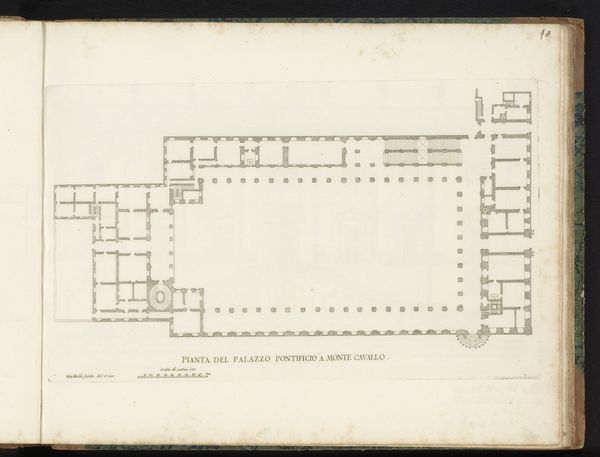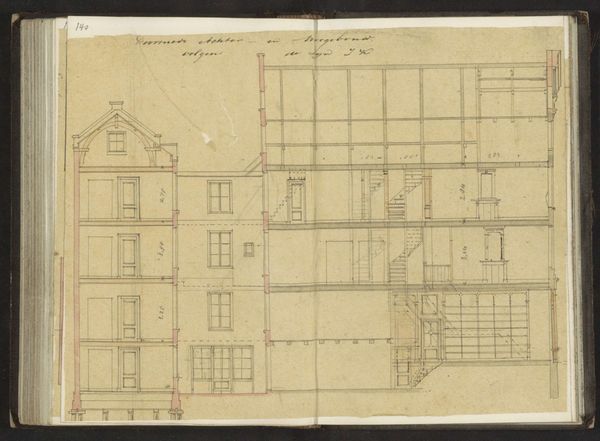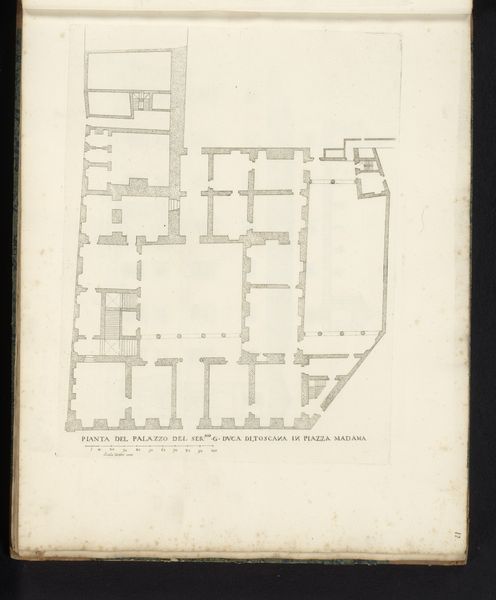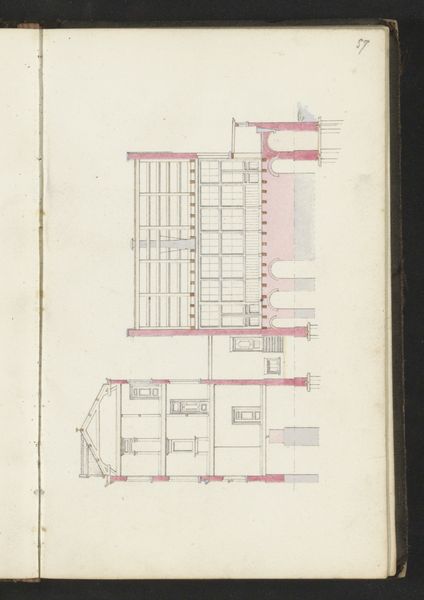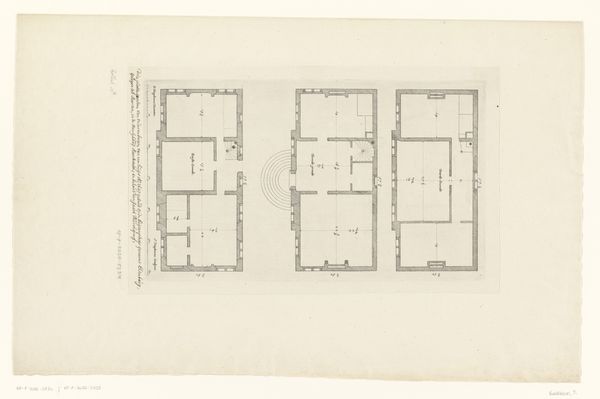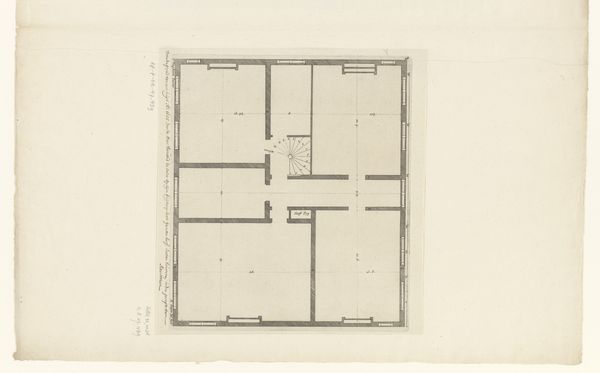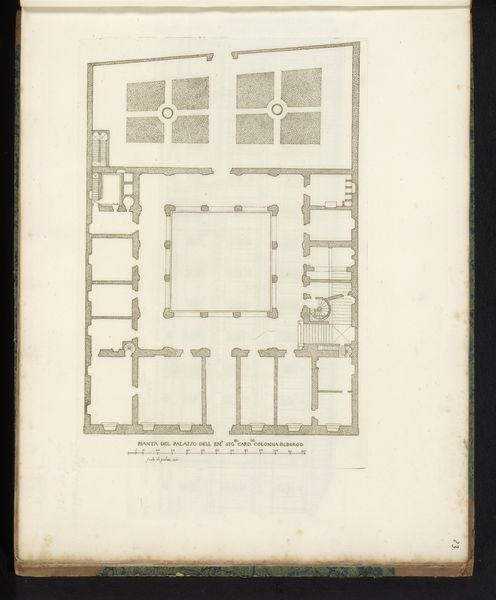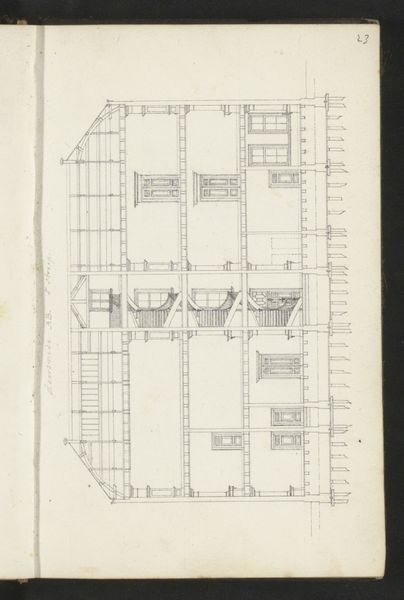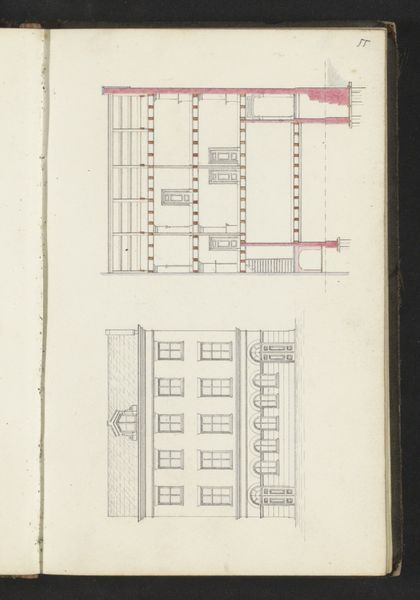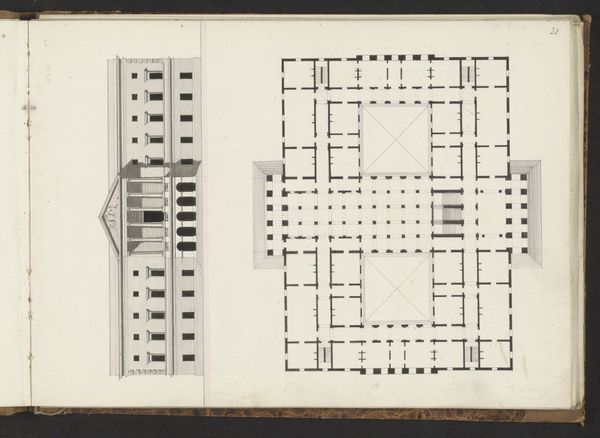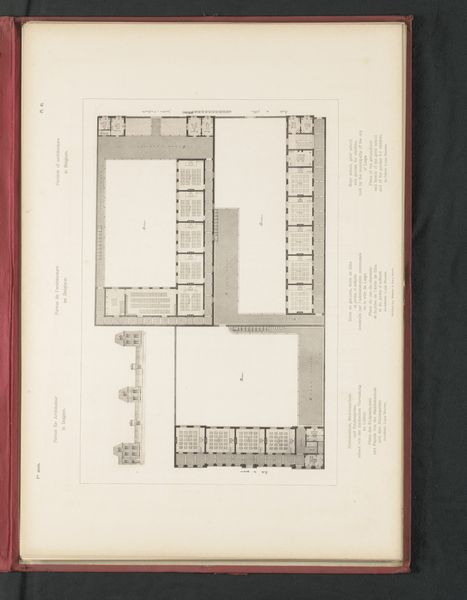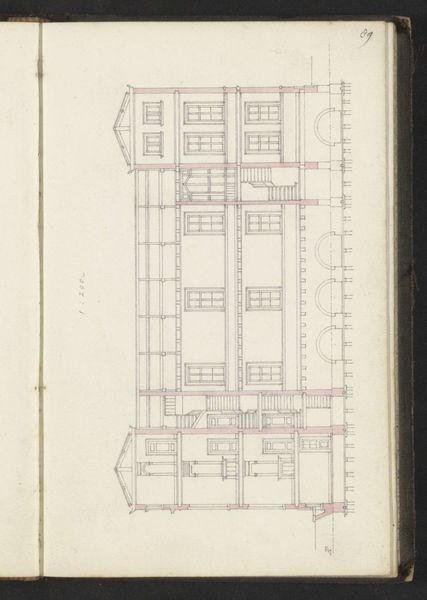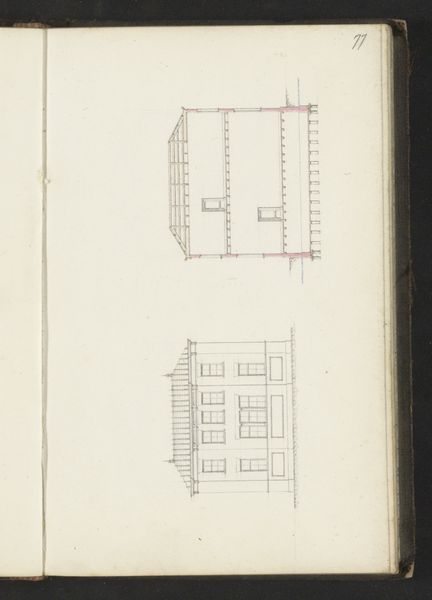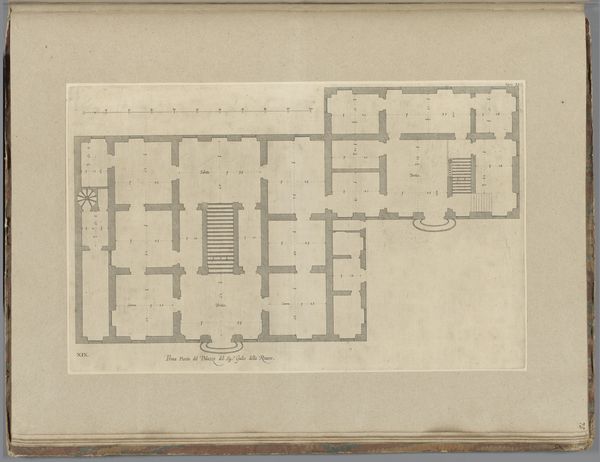
drawing, pencil, architecture
#
drawing
#
aged paper
#
toned paper
#
hand written
#
homemade paper
#
hand drawn type
#
perspective
#
hand-written
#
hand-drawn typeface
#
geometric
#
pencil
#
stylized text
#
thick font
#
academic-art
#
architecture
#
historical font
Copyright: Rijks Museum: Open Domain
Editor: Here we have Willem Springer Jr.'s "Plattegrond en doorsnede van een villa," a pencil drawing of a villa's floor plan and cross-section. The aged paper gives it a delicate feel, almost like uncovering a secret. How should we interpret its meaning within its historical context? Curator: It's essential to understand the societal role architecture played during this time. Blueprints weren’t simply technical documents; they represented aspirations and social hierarchies. How does the drawing's inherent geometry either uphold or challenge conventional notions of domestic space and power during the late 19th century? Editor: It seems quite traditional, the symmetrical layout implying a formal, possibly even rigid, domestic life. Are we to see that as representative of the social constraints of the time? Curator: Precisely. Consider who would have commissioned and occupied such a villa. It likely speaks to a privileged class, a group often invested in maintaining the existing power structures. Can we then interpret the drawing itself as a reflection, or perhaps even an endorsement, of that status quo? Does the artist subvert this reading in any way? Editor: I hadn't considered the drawing as a social statement, but I understand your point about architecture reflecting existing hierarchies. Looking at it again, the scale suggests a kind of separation from the outside world, further reinforcing a sense of exclusivity. Curator: Exactly. Architecture isn't simply about bricks and mortar, but also about power dynamics and social positioning. By situating this drawing within that context, we gain a much richer understanding, don't you agree? Editor: Definitely! This makes me think about the future, how even these types of plans become statements, so paying attention to their implications is necessary. Thanks!
Comments
No comments
Be the first to comment and join the conversation on the ultimate creative platform.
